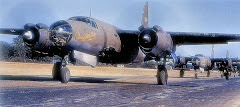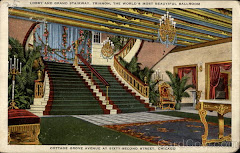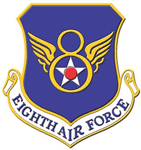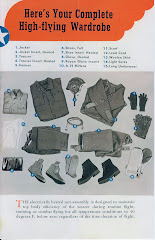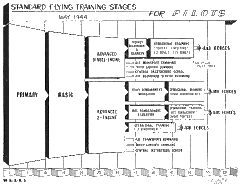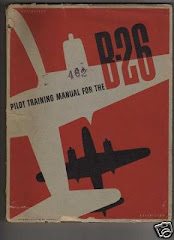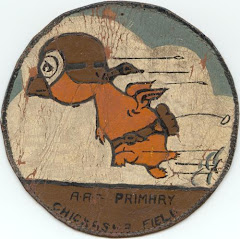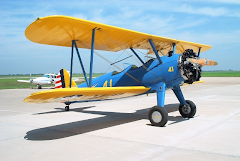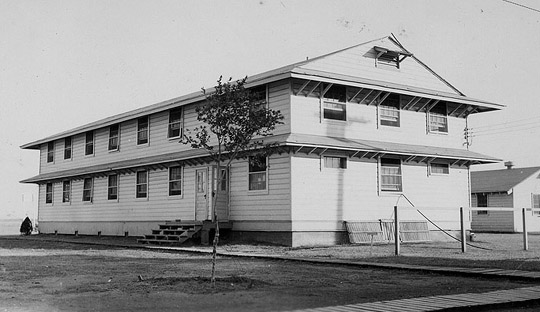Remember ...
Monday, May 28, 2012
Saturday, March 19, 2011
D-Day - Codename: Operation Overlord - The Invasion Begins
By June first we’d been bombing German occupied northern France France English channel . We were usually flying 2 missions a day and the weather was pretty good those first few days.
Soon we were told that D-Day was June 5th. We were restricted to the base, which was alive with preparations. They were painting all the planes with huge black and white stripes so we could tell our planes from the enemy’s.
You could feel the excitement on the base. We’d been having good luck hitting our targets but nothing much was happening on the ground in terms of defeating Germany
Transcript of General Eisenhower’s Message to the Troops on the Eve of D-Day, 1944
Soldiers, Sailors and Airmen of the Allied Expeditionary Force! You are about to embark upon a great crusade, toward which we have striven these many months. The eyes of the world are upon you. The hopes and prayers of liberty loving people everywhere march with you. In company with our brave Allies and brothers in arms on other fronts, you will bring about the destruction of the German war machine, the elimination of Nazi tyranny over the oppressed peoples of Europe , and security for ourselves in a free world.
Your task will not be an easy one. Your enemy is well trained, well equipped and battle hardened, he will fight savagely.
But this is the year 1944! Much has happened since the Nazi triumphs of 1940-41. The United Nations have inflicted upon the Germans great defeats, in open battle, man to man. Our air offensive has seriously reduced their strength in the air and their capacity to wage war on the ground. Our home fronts have given us an overwhelming superiority in weapons and munitions of war, and placed at our disposal great reserves of trained fighting men. The tide has turned! The free men of the world are marching together to victory!
I have full confidence in your courage, devotion to duty and skill in battle. We will accept nothing less than full victory!
Good Luck! And let us all beseech the blessings of Almighty God upon this great and noble undertaking.
-- Gen. Dwight D. Eisenhower photo info unknown, public information from http://www.army.mil/d-day/message.ht
After Eisenhower's message our COO unveiled the war map located on the front wall of the briefing hut and began going over the routes we would all take. We would start taking off just after midnight. We pilots each got our schedules and our Mission Sheet which told me that we wouldn’t be taking off until just before dawn, our usual time. I also knew what plane we’d be flying, that we’d be in #2 position in formation and flying at 4,000' altitude. The weather report listed clouds, fog, and the wind speed we could expect. We knew it was going to be a full moon. There were special code and color names and specific instructions on how we could communicate. Although we’d have a fighter escort, the fighters were also on a mission to seek out and attack the enemy. The briefing didn’t last more than 30 minutes but we were reminded of the importance of our mission and told that there would be as many as 2,000 planes in the air that day. Those of us who weren’t taking off in the first wave were told to head back to our barracks and get some sleep. But there wasn’t much sleeping that night.
Sunday, February 27, 2011
Chapter 30 - May 1944 - Pre-Invasion Tactics
During the month preceding D-Day I think about 3 of our missions over coastal defenses were aborted because of fog, bad visibility and bad weather, sometimes lasting as long as five or six days. Although the weather caused a few cancellations, we (450th BS, 322nd BG) flew another twelve missions in May. This was all part of the pre-invasion offensive. Most of the targets were railroad yards, fuel dumps, and essential transportation routes and bridges near cities along the coast of France or industrial targets in German Occupied France and Belgium
Our missions were not much over four hours long because even though we carried about the same bomb load as the 4 engine B-17’s we only had about four and a half or five hours of fuel. Sometimes we carried 2 one-ton bombs and sometimes we carried forty 100-pound bombs. We were flying medium range and very accurate at hitting our targets. In May our accuracy was 90% on target. The RAF, which shared our base at Andrews Air Field, now had Mustang P-51 fighters and were again escorting us on some missions.
P-51 Fighters
About the middle of May there was a full-scale practice for the coming Invasion. It involved paratroopers, gliders, medical evacs and all 450 bombers (about 16-18 groups) targeting bridges, railroads, German landing fields and fuel dumps, known sites of V-weapons, ports, and coastal enclaves. Many of the total 9th AF missions had to be aborted because of heavy clouds and poor visibility throughout the month.
It was also during May that we finally flew our first Night Flight. If you remember, I was made Captain of our crew a few months earlier because our then Captain refused to fly at night. Then, the Command had second thoughts on the safety of flying at night. This was the first time we’d ever been assigned a night flight. In fact, we were part of the first night bomber mission ever flown in Europe by the US AAF. During the day we flew in box formation but at night each plane flew by instrument on a specific course and at different elevations – 500 feet apart. We took off every 30 seconds and went straight to our assigned altitudes. We weren’t in formation but you still couldn’t vary from your orders or you would risk colliding with another plane. It was surprising how black the night was. All of Europe was in “blackout” so there were no lights from the cities. The heavy cloud cover prevented star or moonlight. Although I think we were all more comfortable flying in the daytime, it was a successful mission and we hit our target.
Sunday, January 23, 2011
Chapter 29 Operation Overlord
Chapter 29 – Operation Overlord
Although there were rumors of a large scale attack ever since Eisenhower took over, we had first heard about Operation Overload (D-Day) in early May. The original date for OO had been cancelled because Germany
The Germans were working on installing huge guns on the north coast of France that could shoot “Buzz Bombs” (V-1s) with the ability to reach England France that would reach the city of London
We’d all been on pins and needles waiting for the invasion operations to start. In the meantime all bomb groups were concentrating on keeping the Luftwaffe out of the air, out of crews, out of fuel, out of replacement parts and hitting any other target that would be useful. No one knew exactly where the invasion would take place either. We never knew where we were bombing until our briefing sessions before the day’s mission. There were lots of rumors about where it would be and some plans to trick the Germans into thinking it would be somewhere else. In the meantime, hundreds of ships were gathering along the southern coast of England. We'd see them every time we took off over the English channel.
Sunday, December 5, 2010
Chapter 28 – The Pressure Rises, The Going Gets Tough
When we’d finally been transferred to the Ninth Army and relocated to Andrews Field in March of 44 it had been the result of the changing winds of war. Although we didn’t know it at the time, our transfer was probably due to three big changes in the strategies of the war.
One was the appointment of Lt. General Jimmy Doolittle to command the Eighth Army in January of ‘44. Until he took over, the fighters were our escorts and protectors. Their job was to bring us back alive. When Doolittle took over that changed. He was all about offense. He said it was time we took over air superiority if we were going to win the war. He changed the job of the fighter pilots from protecting bombers to destroying the German fighter planes. They were to seek out the Luftwaffe and attack. The RAF had been doing that all along. Now, the bomber squadrons were on their own! Our job hadn’t changed: Go in, drop your bombs, get out. 1944 - Lt. General Jimmy Doolittle & Major General Curtis LeMay
The second change had been what they called: Big Week – February 20-25, 1944. The Eighth, Ninth & Fiftheenth US Army Air Forces and the RAF launched a six day attack on Germany ’s aircraft industry – the goal was to achieve air superiority over Germany
There were different targets everyday. They focused on Hitler’s fighter manufacturing and assembly plants, Berlin England and 1500 from Italy Germany England
It was also in early February that we learned Eisenhower had been “officially” named Supreme Allied Commander in Europe . He would take command of Operation Overlord, what we now call the D-Day invasion - when he took over supreme command of all Allied Forces. He agreed with Doolittle, air superiority was required to win the war but he had a bigger vision of the roll of all the military.
Our B-26 Bomber missions during April and May had been successful. We were really good at flying in formation and staying tight. It must have been menacing to the enemy to hear and see all that firepower aimed at them. It was impressive from our end and made you proud to be part of the 322nd. The other side of that is that the Germans were good at getting their anti-aircraft guns back in action and were also usually ready for us. Seeing the flack exploding all around you was as nerve racking as it gets. It was heart stopping to see one of your fellow planes burst into fire after a hit and spin to the ground. It took a lot of concentration to steel yourself to keep on going and keep your thoughts on the job. Luckily it didn't happen on every mission.
One of the big problems of carrying out the missions from Southern England was weather. England, the English Channel, Northern France were constantly being battered by thick fog and spring gales blowing in from the Atlantic, making visibility bad at low altitudes and completely obliterated at higher altitudes. Most of our targets that spring were on the Western front or over Germany
Tuesday, November 23, 2010
Chapter 27 A WWII Thanksgiving in Britain
Thanksgiving Story
An upper class British widow scrimped and saved ration coupons all year long to buy a Turkey
She spent days cleaning and decorating her house. She brought her fine china, crystal and silver out of the bomb shelter, wanting everything to be perfect for the Americans. She did all the cooking and her friends acted as servants for the day.
Everyone was seated in the formal dining room, Mrs. Bridgewater at the head of the table. The tantalizing aroma of roasting turkey filled the air. The soldiers were in their dress uniforms, anxiously anticipating their home cooked traditional American dinner. Toasts had been made. Discussions of the many blessings the group had to be thankful for, even though they were fighting a war far from home and loved ones, were complete.
The time came for the beautiful 20 pound turkey to be served. Cedric, acting as butler, came through the swinging door behind Mrs. Bridgewater’s chair with a flourish - and the turkey slid off the platter and landed on the floor! Everyone was aghast! The much anticipated dinner was ruined! There was complete silence. No one knew what to say or do – except Mrs. Bridgewater!
She calmly instructed Cedric: “Please pick up the turkey, put it on the platter, take it back into the kitchen and bring out the other turkey!”
Wishing you as happy a Thanksgiving as those G. I.s had all those many years ago!
Sunday, November 14, 2010
Chapter 26 - Escaping the War
Chapter 26 – Escaping the War
To relieve the alternating stress and boredom, we were given furlough passes every two to three weeks, usually for two days. The closest train station was in Braintree London
If you rode a bike into the station, the next person who arrived at the station might borrow it to get home. You always had to worry about finding a bike there when you got back. It wasn’t much fun to get back from leave and have to walk back to the base. There wasn’t much hitch hiking in those days, people just didn’t have cars. Occasionally you could bum a ride from one of the businesses that had a “lorry” (truck) but you might have to help him make a delivery or two.
People in the neighboring villages were pretty friendly about sharing their bikes. No one ever locked their bike but they did have their names on them. We’d try to avoid taking the bikes with names on them whenever possible. Every once in awhile the train station manager would send a truck out to the base to collect the bikes that belonged to the villagers.
It was safe to go into London London , “the Blitz” had started in September 1940 and continued until May of 1941 when Hitler needed his Luftwaffe to invade Russia London
There were more than a dozen Red Cross Clubs in London Piccadilly Circus – where all the theaters and shops were – so there was always something to do.
Sheet Music of a song about the Rainbow Corner
You could get a room at the Rainbow Corner for about 50 cents and they had real sheets. They had just about anything else you needed from a laundry to a barbershop. You could take a hot shower or a bath. The Red Cross was famous for supplying doughnuts and coffee to servicemen (even if they had to deliver them by mobile units) and you could usually get a sandwich and piece of cake or a bottle of Coca Cola at the donut canteen downstairs. They also served hot meals there, usually fish or rabbit and vegetables or something with beans. London
Time passed too quickly when you were off base on a pass and it seemed like you’d just left when it was time to go back.
Subscribe to:
Posts (Atom)













